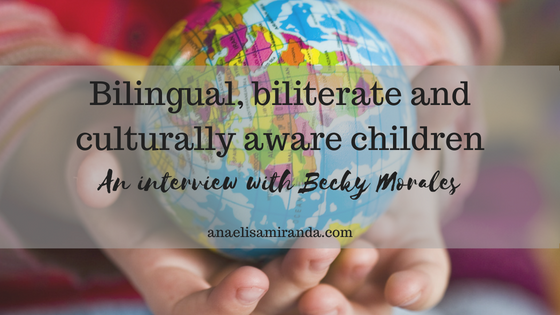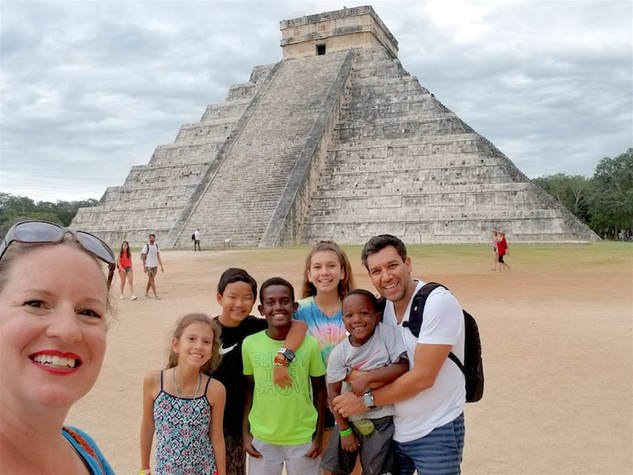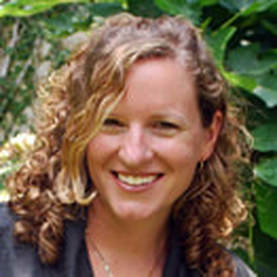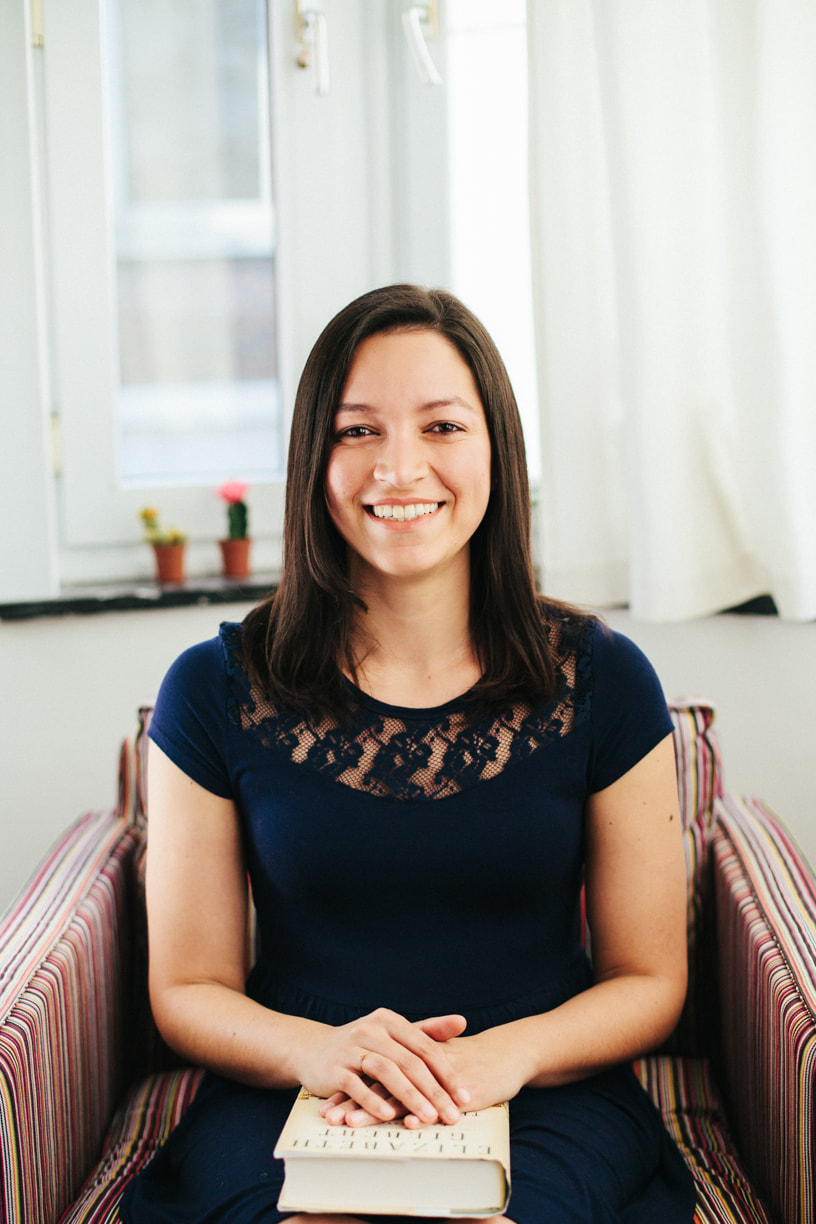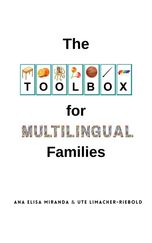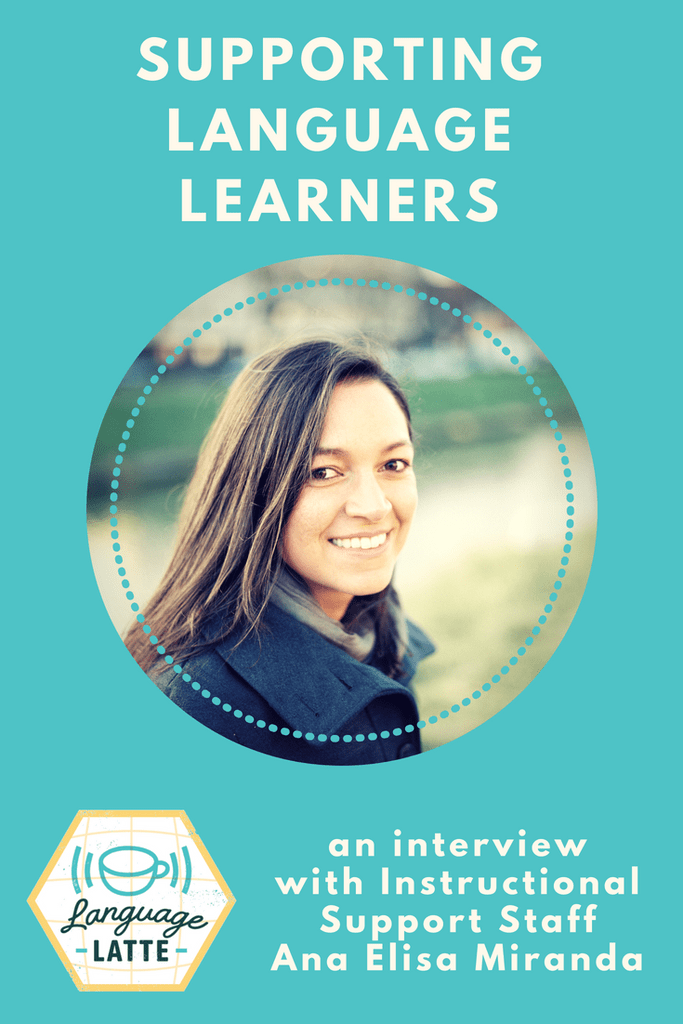Becky Morales is an ESL and Spanish teacher. She's an American mother of five bilingual and multicultural children and the founder of Kid World Citizen. She lives in Mexico with her family and loves connecting with teachers and parents on Facebook and Twitter.
Tell us a little about yourself and your family.
I am from the US and my husband is from Mexico. We met when we were both studying at the University of Illinois - Champaign, when they matched us up to be buddies (he was an exchange student at the time, and I was supposed to "show him around.") We lived in London for a few years when we first married, and then lived in the US for many years. We moved to Mexico a year ago to improve our kids' Spanish. Toño works in consulting and I am a teacher (ESL and Spanish). My kids (through birth and adoption) have roots in Mexico, the US, China, and Ethiopia.
I am from the US and my husband is from Mexico. We met when we were both studying at the University of Illinois - Champaign, when they matched us up to be buddies (he was an exchange student at the time, and I was supposed to "show him around.") We lived in London for a few years when we first married, and then lived in the US for many years. We moved to Mexico a year ago to improve our kids' Spanish. Toño works in consulting and I am a teacher (ESL and Spanish). My kids (through birth and adoption) have roots in Mexico, the US, China, and Ethiopia.
What benefits does knowing different cultures and languages bring to your children?
I think the biggest advantage to being raised culturally aware is that they are more open to new experiences, they do not judge others, and they have a lot of empathy for people, accepting their different perspectives.
How do you incorporate minority-language literacy in your daily lives?
When we are in the US, I make sure I have plenty of books in Spanish around- both that I can read to them, and that they can read on their own.
Staying consistent in raising multilingual kids is tough. How do you and your kids stay motivated and focused on the goal?
It is really hard because when I am in a rush, I easily slip into English. We need to speak Spanish at home because my husband works long hours, and he doesn't see them as much as I would (so OPOL wouldn't work for us). We mess up a lot, and just start over and try harder :)
Have you encountered any literacy difficulties? How have you dealt with them?
One of my children is dyslexic, but it hasn't hindered him in reading in Spanish any more than it has reading in English. Our difficulties have been more that the kids thought it was "harder" to read in their second language, and so they are resistant. As I keep encouraging them and as they get more comfortable, I see way less resistance. In fact, my daughter just read her first (very long!) novel in Spanish and LOVED it.
What would you tell parents who are hesitating about teaching their kids to read in multiple languages?
They definitely won't get confused. The best part of reading in another language is that you transfer all of your literacy knowledge (like sounding out the words, chunks of letters that have meaning, etc) to both languages. Just keep reading to them, and they will begin to transfer their skills into the new language!
Tell us about how you started Kid World Citizen.
I started Kid World Citizen as a way to share cultural activities with transracial and transcultural adoptive parents, to help cultivate pride in their children for their heritage culture. I expanded it to include global learning from all corners of the world as I realized that many parents and teachers were interested in incorporating these activities with their children and students. My goal is to help this generation become responsible, empathetic, and culturally aware global citizens. Our world is so interconnected, that these 21st century skills will inevitably help our children not only succeed, but make the world a better place.
I think the biggest advantage to being raised culturally aware is that they are more open to new experiences, they do not judge others, and they have a lot of empathy for people, accepting their different perspectives.
How do you incorporate minority-language literacy in your daily lives?
When we are in the US, I make sure I have plenty of books in Spanish around- both that I can read to them, and that they can read on their own.
Staying consistent in raising multilingual kids is tough. How do you and your kids stay motivated and focused on the goal?
It is really hard because when I am in a rush, I easily slip into English. We need to speak Spanish at home because my husband works long hours, and he doesn't see them as much as I would (so OPOL wouldn't work for us). We mess up a lot, and just start over and try harder :)
Have you encountered any literacy difficulties? How have you dealt with them?
One of my children is dyslexic, but it hasn't hindered him in reading in Spanish any more than it has reading in English. Our difficulties have been more that the kids thought it was "harder" to read in their second language, and so they are resistant. As I keep encouraging them and as they get more comfortable, I see way less resistance. In fact, my daughter just read her first (very long!) novel in Spanish and LOVED it.
What would you tell parents who are hesitating about teaching their kids to read in multiple languages?
They definitely won't get confused. The best part of reading in another language is that you transfer all of your literacy knowledge (like sounding out the words, chunks of letters that have meaning, etc) to both languages. Just keep reading to them, and they will begin to transfer their skills into the new language!
Tell us about how you started Kid World Citizen.
I started Kid World Citizen as a way to share cultural activities with transracial and transcultural adoptive parents, to help cultivate pride in their children for their heritage culture. I expanded it to include global learning from all corners of the world as I realized that many parents and teachers were interested in incorporating these activities with their children and students. My goal is to help this generation become responsible, empathetic, and culturally aware global citizens. Our world is so interconnected, that these 21st century skills will inevitably help our children not only succeed, but make the world a better place.
|
Becky started KidWorldCitizen.org and co-authored the Global Education Toolkit for Elementary Learners to give parents and teachers activities to teach kids about world cultures. She recently began the Language Latte Podcast, where she shares research and best practices for world language teachers. You can also find many Spanish activities on her TpT Store: Kid World Citizen.
|

